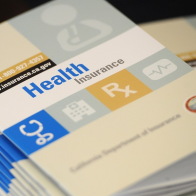 This just in! The Institute of Medicine made it’s recommendations to the Department of Health and Human Services today regarding preventative health care for women. And they have decided that birth control should be included in the services covered by insurance companies!
This just in! The Institute of Medicine made it’s recommendations to the Department of Health and Human Services today regarding preventative health care for women. And they have decided that birth control should be included in the services covered by insurance companies!
The following eight services have been recommended as preventative health needs for women:
- screening for gestational diabetes
- HPV testing as part of cervical cancer screening for women over 30
- counseling on sexually transmitted infections
- counseling and screening for HIV
- contraceptive methods and counseling to prevent unintended pregnancies
- lactation counseling and equipment to promote breast-feeding
- screening and counseling to detect and prevent interpersonal and domestic violence
- yearly well-woman preventive care visits to obtain recommended preventive services
If the Department of Health and Human Services accepts these recommendations, these services will be available to insured women with no co-pays required. The National Journal reports that the panel emphasized the importance of covering contraceptive costs. “Women with unintended pregnancies are more likely to receive delayed or no prenatal care and to smoke, consume alcohol, be depressed, and experience domestic violence during pregnancy. Unintended pregnancy also increases the risk of babies being born preterm or at a low birth weight, both of which raise their chances of health and developmental problems,” says the official report.
No co-pay contraception is a huge deal, especially considering the many women who struggle to pay monthly birth-control co-pays or who use other methods of preventing pregnancy (including “prayer” and “nothing at all”…you know who you are) because they can’t afford the costs.
Deborah Nucatola, senior director for medical services for Planned Parenthood Federation of America, tells NPR that free contraception could prevent many unwanted pregnancies. “Half of all pregnancies that happen in the U.S. every year are unintended,” she says. “And if we could prevent an epidemic of this proportion, that should be justification enough that contraception is preventive care.” Furthermore, it can help mothers who want to have more children time their pregnancies better: “Babies born at least 18 months apart are going to be healthier than those born closer together, and closely timed births are risky for their mothers, too.”
A poll by NPR and Thomson Reuters found that three-fourths of respondents felt that contraception should be paid for completely or in part by insurance plans.
Free or reduced cost contraception would invariably reduce the number of abortions each year, which one would think to be something anti-abortion groups and individuals would champion. Not necessarily, because for many, the bigger issue is people having sex and not being willing to have a baby as a result.
The Family Research Council, a conservative organization which operates the Center for Human Dignity, feels that free contraception violates the “conscience rights” of those who oppose artificial contraception for religious reasons. They also cite their issues with abortion, claiming that Plan B (which is not an abortion pill) aborts a baby which is actually not a baby. According to Jeanne Monahan, director of the Center: ”…7 to 10 days before a baby can implant, Plan B can prevent implantation and thereby cause the demise of that baby. So we’d be opposed to those drugs being included because they act as abortifacients.”
Fun fact: Plan B prevents pregnancy before it occurs; however, abortion opponents have long ignored that and gone with the whole “the penis put a baby in the vagina and that pill stops that baby from its rightful life” spin instead.






